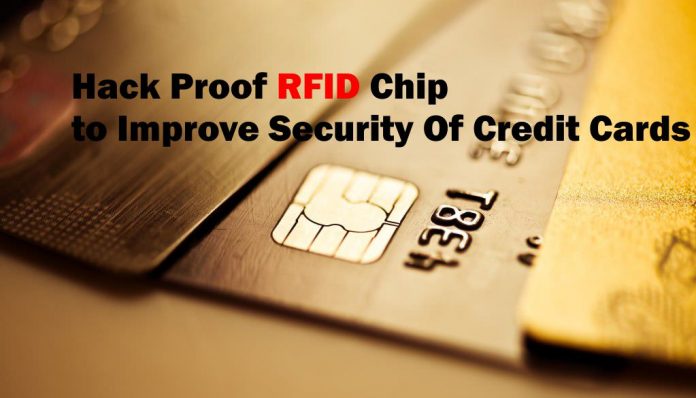Scientists from MIT and Texas Instruments have developed a new type of RFID chip i.e. Radio Frequency Identification chip, which helps to improve the security of your credit cards, key cards, and warehouse goods and is almost impossible to hack.
This RFID chip has been designed to prevent ‘Side Channel Attacks’. Side channel attacks are those, where inconstancy in power and memory accessing patterns are analyzed while the device is on operation accumulate information about Cryptographic Key (a piece of information/ parameter to determine Cryptographic algorithm).
Chirag Juvekar, MIT engineer said, “The idea of a side-channel attack is that a given execution of the Cryptographic Algorithm only leaks a slight amount of information. So you need to execute the Cryptographic algorithm with the same secret many, many times to get enough leakage to extract a complete secret.”
Changing Secret keys periodically is also one way to stop side channel attacks. In that case, the RFID chip will run a random number generator which will generate a new secret key after each transaction. After that, a central server will run as the same generator and then RFID scanner will check the tag, it will transmit results to the server to check whether the current key is valid.
Such type of system remains accessible to ‘Power Glitch Attack’ in which power of RFID chip will be often cut before it changes its secret key. At this time, an attacker could attack thousands of attack by running same side channel, with the same key.
According to MIT, “Power glitch attacks have been used to avoid limits on the number of incorrect password entries in the password protected devices but RFID tags are particularly accessible to them since they are charged by tag readers and have no onboard power supplies.”
There are two design innovations allows MIT scientists to stop power-glitch attacks: the first one is an on-chip power supply whose connection to the chip circuitry would be literally impossible to cut and the other is a set of ‘non-volatile’ memory cells that can store any data, the chip will start working when it begins to lose power.
Juvekar and Anantha Chadrakasan, electrical engineering and computer science professor used a special kind of material known as ‘Ferroelectric Crystals’ for these features.
Ferroelectric Crystals are already used by big chip makers to produce non-volatile memory or computer memory that grasps data when it’s powered off.
To build several prototypes of the new hack-proof RFID chip, the research team has come together with Texas Instruments. The first presentation of this research at International Solid State circuits Conference, in San Francisco.
